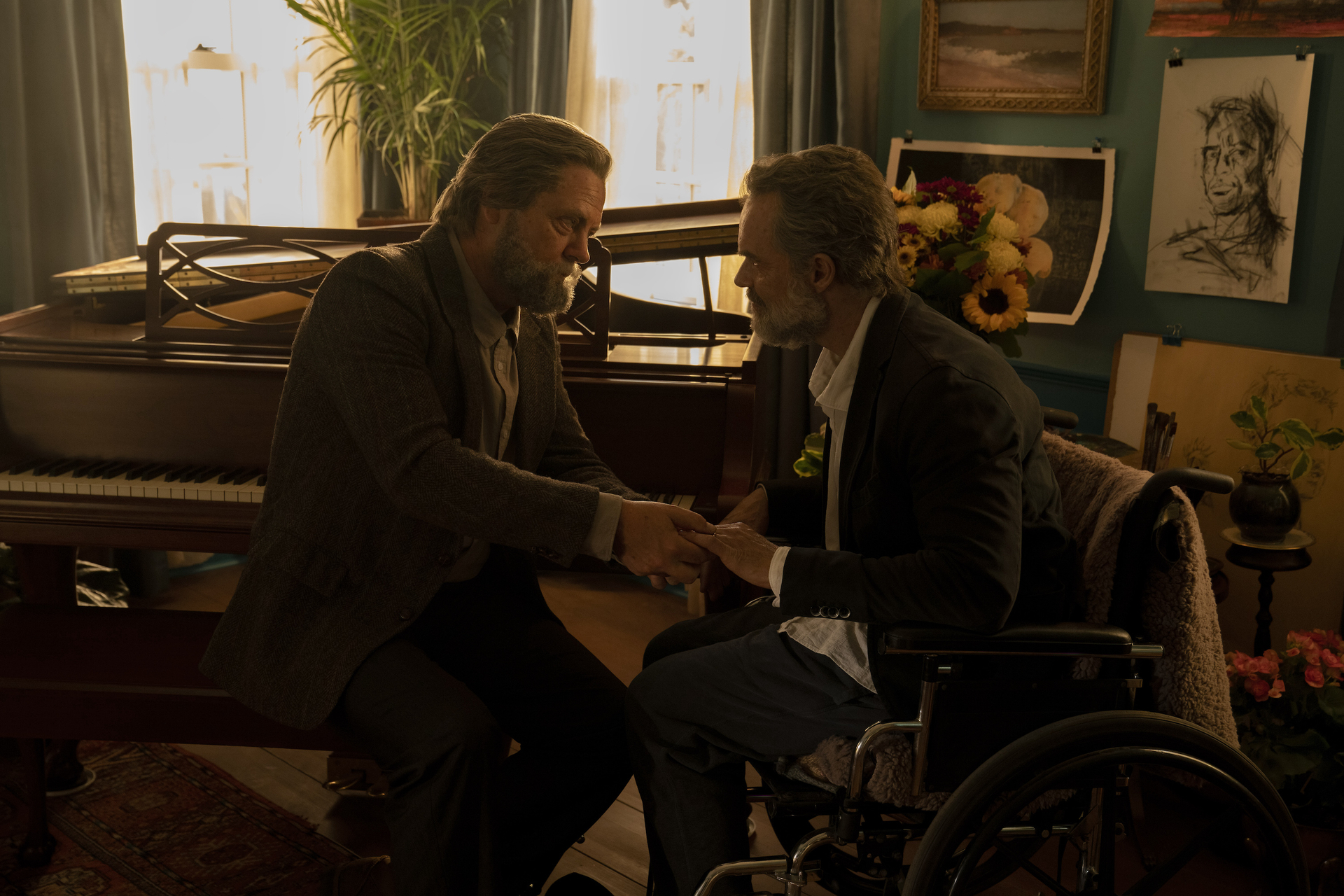Joanna Ribeiro was brought to tears while watching HBO’s The Last of Us spotlight a gay romance.
“It’s like watching the Titanic for the first time, but for gay people,” said Ribeiro, 20, who is bisexual. “It gave me a sense of being seen, seeing a story that I can relate to.”
Episode three of The Last of Us, named “Long, Long Time”, provided a rollercoaster of emotions for Ribeiro. She initially worried this romance was nothing more than HBO’s attempt at being woke. By the end, she was praising how fleshed out the story was while tending to her tears.
This was unexpected, Ribeiro said.
The video game the show was adapted from merely hinted at a gay relationship between characters named Bill and Frank. Ribeiro along with other online gamers generally glanced over the hinted relationship entirely during their playthroughs.
“It was a detail that you had to find on your own,” Ribeiro said. “Whereas watching Bill and Frank’s story begin and end in the show gave it substance because you witness a gay couple fall in love, grow old and die.
“So it was a complete love story that existed only within itself,” she said.
This episode reignited the conversation about the importance of LGTBQ+ representation in media and what sets the standard for a good portrayal.
“Characters should be written first and their sexuality added later,” Ribeiro said. “People of all sexualities share in the same experiences. The identities of characters in mainstream media shouldn’t revolve around their sexuality.”
Bill was a minor but memorable character that players met in the game. While seeking shelter in a house, Frank can be found hanging, killing himself after being bitten by an infected.
There’s a note players can find later from Frank detailing he hated Bill’s guts and parted ways out of spite for him.
The show decided to take a different approach to this story.
Bill and Frank, played by Nick Offerman and Murray Bartlett, live together in a gated community. While still sharing disagreements, they overcome them as they rediscover the simple things in life during a zombie-like outbreak.
The episode jump cuts through years of their lives.
Frank soon decides he’s lived a full life and wishes to end it as his cancer diagnosis catches up to him. Opting for one last good day with Bill, ending in their wedding.
What follows is a Romeo and Juliet-like ending where Bill chooses to die alongside Frank.
“I was pretty much crying for that whole second half of the episode,” Ribeiro said. “That ending really hit home, like I was still thinking about it a while after watching.”
The episode faced a review bombing, which is subjecting an episode, series or film to negative rating en masse, with some “reviewers” sometimes creating alternate accounts to do so.
The episode now carries the lowest rating on IMDB in the series. For comparison, the pilot drew in more than 87,000 reviews while this one garnered closer to 200,000.
This occurred with Marvel films Eternals for a gay scene and Captain Marvel for the lead actor Brie Larsson being a feminist.
John Larsson, a Toronto social justice worker who specializes in LGTBQ+ issues, doesn’t appreciate the review bombing.
“God forbid it should show or portray a gay relationship even though 99.9 per cent of all other relationships are portrayed as heterosexual,” said Larsson, who was a counsellor with the AIDS Committee of Toronto (ACT). “Give me a break. What are they afraid of?”
Larsson said mainstream representation provides hope to the LGTBQ+ community and takes them out of places of isolation and stigmatization. It makes them feel seen.
For viewers outside of the community, Larsson said it normalizes them to a concept they may be distant from.
“Accepting is really important, that’s ultimately what we all need, in order to feel safe and be able to learn how to develop healthy relationships,” Larsson said.
To Larsson what separates good or bad representations is intent. He’s okay seeing the gay neighbor who’s incredible at cooking as long as there’s a balance.
“It’s not that stereotypes aren’t real, it’s just that it only represents a small portion of a community,” Larsson said.
A longtime fan of the series, Lucas Soares, is all too familiar with the backlash LGTBQ+ characters receive.
“It’s clear that people went out of their way to bomb the rating and I think many of these reviews are rooted in homophobia,” said Soares, 22, who is gay. “It’s just disgusting.”
The Last of Us was his first encounter with gay representation in gaming before he decided to come out as gay, he said.
Soares said this portrayal was a ray of sunshine in an otherwise grim series, though he can’t help but feel this rewrite felt out of place. But he’s okay with that.
“Remove these two characters from the episode and it almost doesn’t affect the plot whatsoever,” Soares said. “Bill survived in the game, killing him off felt like the creators avoiding commentary and resorting to the “bury your gays” trope.”
What he’s referring to is a term created in response to mainstream media notoriously killing off their LGTBQ+ characters.
This term is also used when LGTBQ+ characters exist solely to advance the narrative of characters around them.
“It’s not perfect and I’m okay with that, it was still a beautiful telling of gay love,” Soares said.
Bill and Frank aren’t the only LGTBQ+ characters from the game and Soares is hopeful the creators plan to adapt the others onto the big screen.

